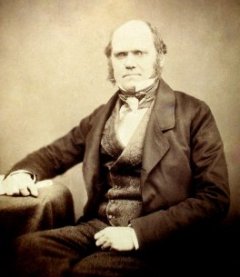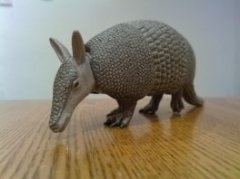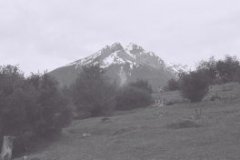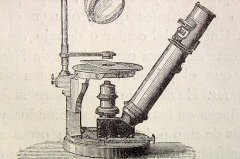 "/> Google+ 1 "/> LinkedIn 1 "/> -- Email to a friend"/> Buffer 0 Buffer"/> 10 Flares
"/> Google+ 1 "/> LinkedIn 1 "/> -- Email to a friend"/> Buffer 0 Buffer"/> 10 Flares
A naturalist and geologist, Charles Darwin is best known for his contributions to evolutionary theory that establish all species of life have descended from common ancestors over time. Apart from his amazing research, findings and compelling evidence there are some quirky facts about Darwin that aren’t as widely known. Here’s a round-up of some of the more unusual.
1. Eat what you know
Appetite was not a problem for Darwin. He ate just about anything that he encountered and studied, for that matter. Perhaps this was out of necessity (survival) or maybe it was part of his enthusiasm for dining on exotic creatures. Prior to boarding the HMS Beagle, Darwin was a member of England’s Glutton Club, which regularly consumed various wild meats and birds.
 Based on documentation here’s a smattering of what Darwin was known to have scarfed down and what it tasted like:
Based on documentation here’s a smattering of what Darwin was known to have scarfed down and what it tasted like:
- Armadillo – tastes like duck
- Puma – tastes like veal
- Tortoise – tastes like beef
- Rhea (ostrich-like bird) – tastes like chicken
- Agouti (guinea pig type rodent) – Darwin’s favorite and no comparison
- Owl – indescribable
2. The gift of Mother Nature

On Darwin’s 25th birthday in 1834, Captain Robert Fitzroy named a mountain after him in Tierra del Fuego, an archipelago off the southernmost tip of the South American mainland, across the Strait of Magellan. The mountain is known as Mount Darwin. Happy birthday big time (literally)! The mountain is just shy of 8, 000 feet tall.
3. Keeping it in the family
As passionate as Darwin was about the importance of genetics in natural selection he ultimately decided to marry his first cousin, Emma Wedgwood. Can you say irony? The couple went on to have 10 children and Darwin was a dedicated and caring father. Truth be told, Darwin wasn’t the first guy to enter into matrimony with a cousin. aria Barbara Bach
aria Barbara Bach
- Physicist Albert Einstein and his mother’s first cousin Elsa Löwenthal née Einstein
- Outlaw Jesse James and his first cousin Zerelda “Zee” Mimms
- Author Edgar Allan Poe and his cousin Virginia Clemm
- Novelist H.G. Wells and his first cousin Isabel Mary Wells
4. Almost missed the boat
The ship that took Darwin to the Galapagos Islands was almost a no go. For starters, the Captain had someone else in mind and Darwin’s dad had to be convinced to allow him to go abroad. It was only because the Captain’s friend turned down the job that Darwin was able to join the crew and set sail for South America.











